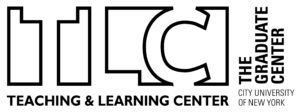Home » Posts tagged 'digital ethnography'
Tag Archives: digital ethnography
DOING ETHNOGRAPHY IN THE TIME OF COVID-19
By: Miryam Nacimento and Agustina Checa
Was your ethnographic research suspended because of Covid? Are you having trouble finding ways to move forward? In this short piece, we reflect on methodological strategies for advancing ethnographic research in these difficult times.
Ever since March 2020, our everyday lives have been turned upside down. As social restrictions were enforced, working remotely became “the new normal”. For the academic world, this not only meant remote teaching and an overabundance of virtual meetings and webinars, but also the encounter with seemingly insurmountable barriers for conducting onsite research. Social scientists with ethnographic projects had to suspend fieldwork plans and rethink methodologies and practices for continuing with their research objectives amid the uncertainty, overflow of (dis)information, and personal distress. After a year, ethnographers have come up with different strategies and innovative approaches to adapt their investigations to the changing conditions while also pushing for a critical revision of traditional ideals surrounding ethnographic fieldwork.
Initiatives such as Patchwork Ethnography[1], a collaborative research project led by anthropologists whose plans were disrupted by the pandemic, saw in the current crisis an opportunity for questioning established expectations of fully immersive long term fieldwork, thus also highlighting well-known limitations posed by common everyday situations such as family obligations, scarce access to funding, among others (Gökçe, Varma, and Watanabe 2020.). Distancing themselves from oftentimes unattainable research mandates, this group of researchers proposes Patchwork Ethnography as a method based on short-term visits and the use of fragmentary data, albeit without compromising the development of a deep commitment with research subjects and the reliance on contextual knowledge.
Other voices have also found similarities between the current research conditions and the restrictions long faced by researchers who have dedicated themselves to study difficult-to-access fields. For instance, we could learn several lessons from the experiences of ethnographers that have previously analyzed conflict-ridden situations, closed societies, or people with power (Gusterson 1997). Some of their strategies for data collection include the interaction with research subjects in social media and online conferences, virtual interviews, analysis of mass media (TV and radio broadcasting) as well as the study of cultural manifestations (music, art, and performance).
The revision of grey literature such as government reports and the incorporation of a historical perspective through archival work are additional methodological alternatives for data collection. Finally, digital ethnography or the study of digital media and their social worlds could also constitute a powerful methodology able to enrich your original object of study. In forthcoming blog posts, we will give some examples on how to start framing your digital ethnography project and discuss some of the tools you could use to start gathering data. Stay tuned!
If you want to continue exploring practices and tools for your digital ethnographic project, we encourage you to attend the second workshop on Digital Ethnography: Finding and Working with Online Data. Register here: https://forms.gle/4b53dGBLB8RTHEbdA
References
Günel, Gökçe, Saiba Varma, and Chika Watanabe. 2020. “A Manifesto for Patchwork Ethnography.” Member Voices, Fieldsights, June 9.
Gusterson H. 1997. Studying up revisited. PoLAR: Political and Legal Anthropology 20(1): 114–119.
[1] https://culanth.org/fieldsights/a-manifesto-for-patchwork-ethnography






